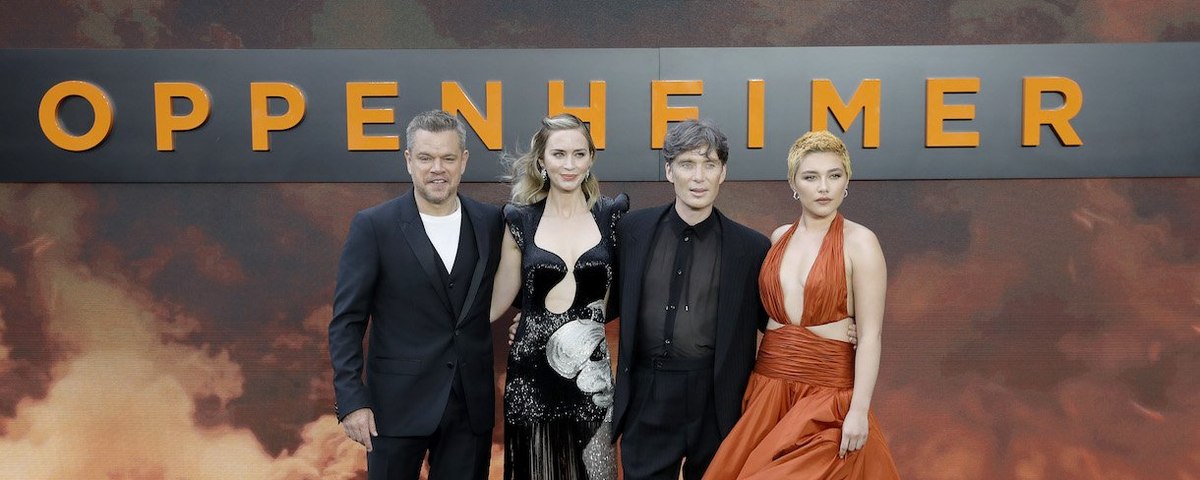Around 27% of Americans say they'll watch some or all of the 2024 Academy Awards on Sunday, March 10. Most of those who do watch say they'll be rooting for either "Oppenheimer" or "Barbie" — two of the biggest movies released last year.
Those two Best Picture nominees combined for nearly $1 billion in revenue at the U.S. box office. Each grossed far more than the other eight nominees combined. That's reflected in the March 3 - 5 Economist / YouGov Poll, which found that 32% of U.S. adult citizens say they had seen "Barbie" and 24% had seen "Oppenheimer." The next-most-seen Best Picture nominee was "Killers of the Flower Moon," seen by 11%, while the other seven movies have each been seen by less than 10% of American adults.
The Oscars audience on March 10 will be somewhat more familiar with the films seeking Academy Awards. While the average American has seen just one Best Picture nominee, Americans who say they plan to watch at least part of the 2024 Oscars have seen an average of 2.5 Best Picture nominees.
Overall, 54% of Americans haven't seen any of the 10 Best Picture nominees.
A person who has seen just two nominated films — which many Americans did in a single day with the joint "Barbie"-"Oppenheimer" phenomenon known as Barbenheimer — means someone has seen more nominees than three-fourths of U.S. adult citizens. Watching four nominees puts someone in the top 10%.
Americans are most likely to think "Oppenheimer" should win Best Picture
Most Americans don't have a strong opinion about which movie should win Best Picture, but those who do are likely to favor "Oppenheimer" or "Barbie."
"Oppenheimer," the epic about the development of the atomic bomb directed by Christopher Nolan, is widely considered the favorite to win Best Picture. 26% of Americans say it should win, twice as high as the 13% who support the next-most-popular nominee, "Barbie." Another 14% of Americans are split between the other eight nominees.
Women, who are 9 points more likely than men to have seen “Barbie,” are evenly divided about which of the two movies should win Best Picture. Men choose “Oppenheimer” over “Barbie” by a margin of 34% to 7%.
While it makes sense that "Oppenheimer" would have more support to win Best Picture than a host of lesser-seen nominees, even Americans who've seen the other Best Picture nominees are more likely to say "Oppenheimer" should win.
Americans like the directors of top-grossing 2023 nominees
Three of the biggest names at the March 10 Academy Awards are directors Martin Scorsese of "Killers of the Flower Moon," Christopher Nolan of "Oppenheimer," and Greta Gerwig of "Barbie." While many Americans don't have strong opinions about the three directors, those who do are much more likely to have favorable than unfavorable views.
Americans who plan to watch the 2024 Oscars have more favorable views than U.S. adult citizens overall of the three directors.
— Kathy Frankovic and Carl Bialik contributed to this article
Related: Oppenheimer is Americans' top pick for Best Picture at the 2024 Oscars
See the toplines and crosstabs from the Economist/YouGov poll conducted on March 3 - 5, 2024 among 1,556 U.S. adult citizens.
Methodology: Respondents were selected from YouGov’s opt-in panel using sample matching. A random sample (stratified by gender, age, race, education, geographic region, and voter registration) was selected from the 2019 American Community Survey. The sample was weighted according to gender, age, race, education, 2020 election turnout and presidential vote, baseline party identification, and current voter registration status. Demographic weighting targets come from the 2019 American Community Survey. Baseline party identification is the respondent’s most recent answer given prior to November 1, 2022, and is weighted to the estimated distribution at that time (33% Democratic, 31% Republican). The margin of error for the overall sample is approximately 4%.
Image: Getty












